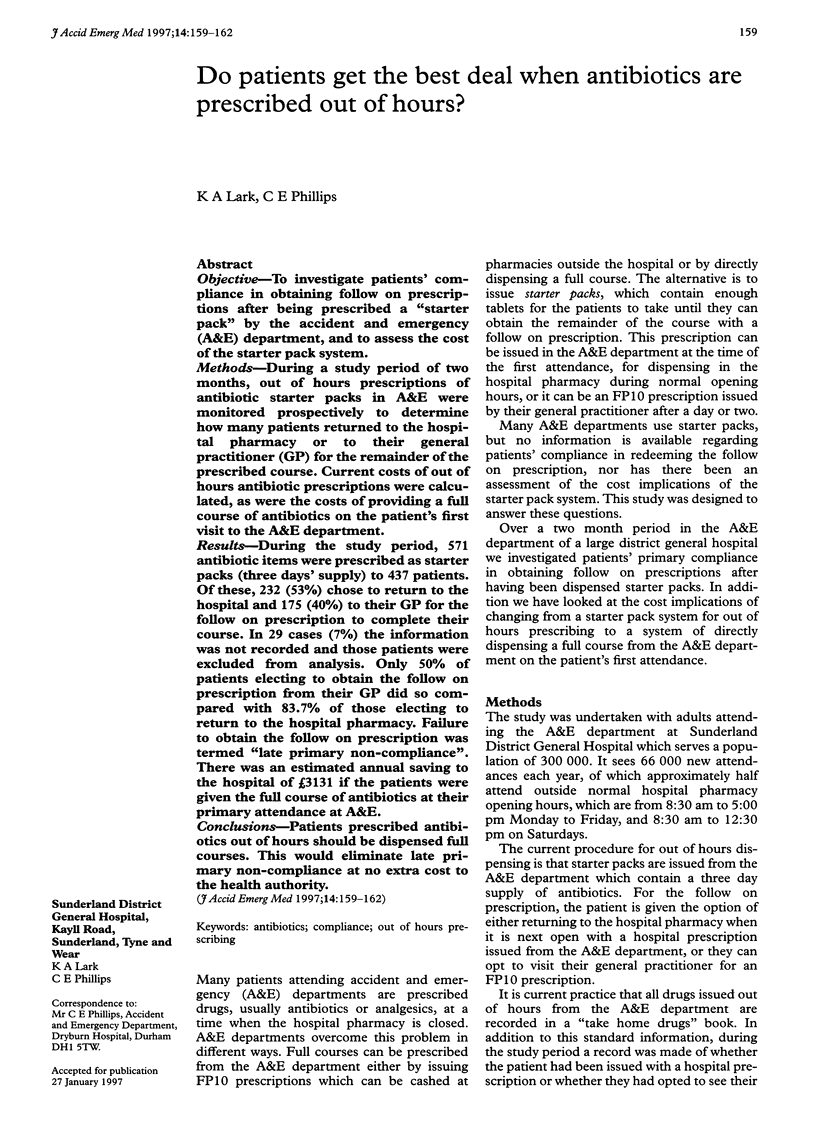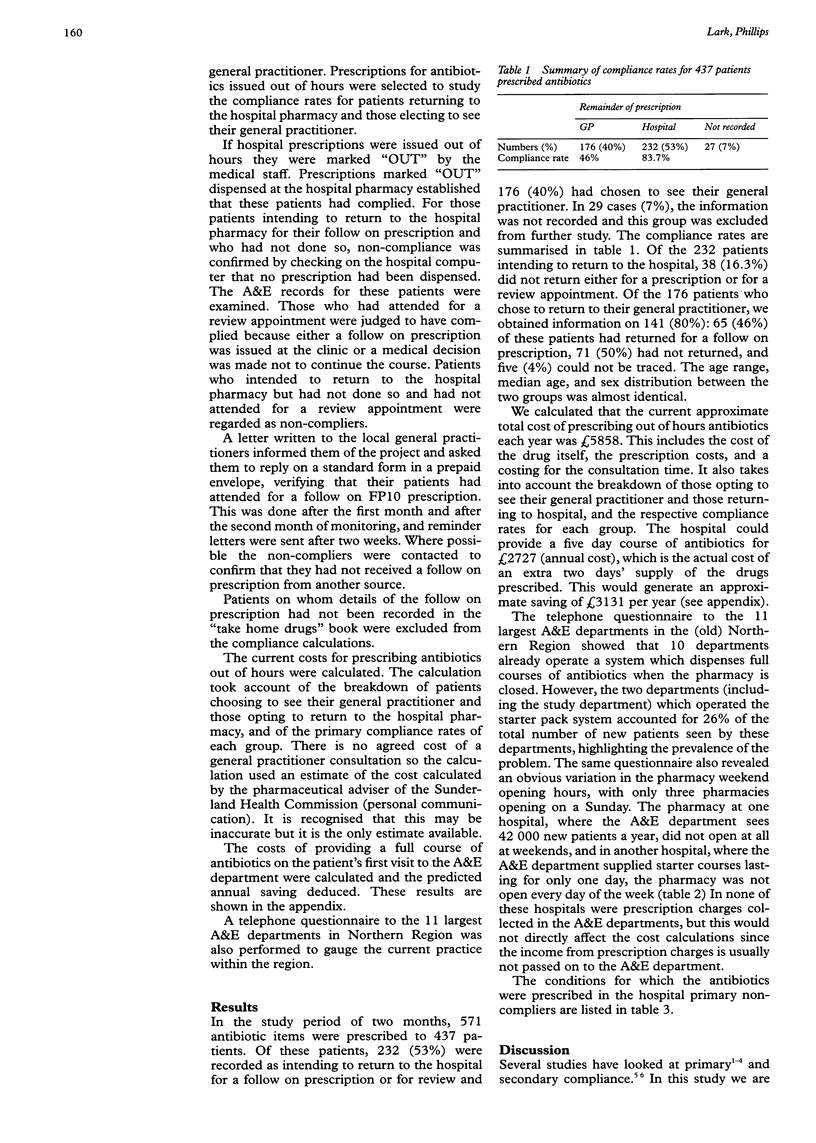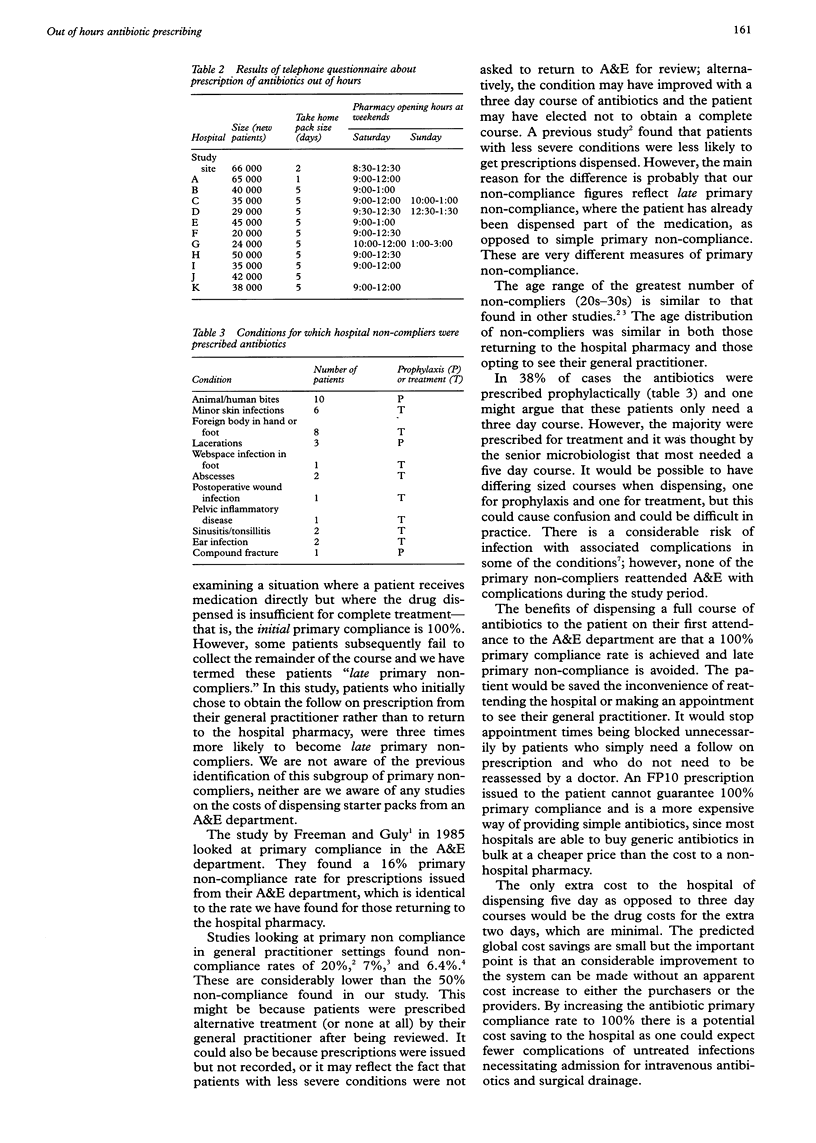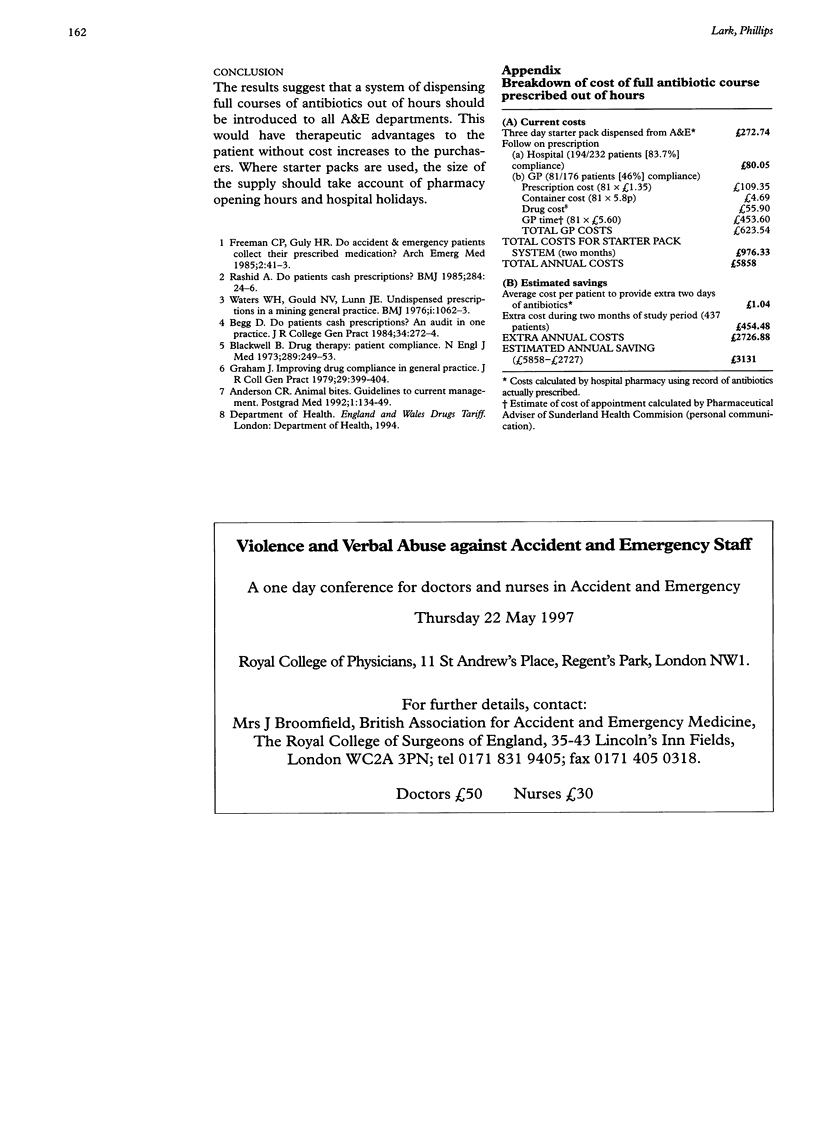Abstract
OBJECTIVE: To investigate patients' compliance in obtaining follow on prescriptions after being prescribed a "starter pack" by the accident and emergency (A&E) department, and to assess the cost of the starter pack system. METHODS: During a study period of two months, out of hours prescriptions of antibiotic starter packs in A&E were monitored prospectively to determine how many patients returned to the hospital pharmacy or to their general practitioner (GP) for the remainder of the prescribed course. Current costs of out of hours antibiotic prescriptions were calculated, as were the costs of providing a full course of antibiotics on the patient's first visit to the A&E department. RESULTS: During the study period, 571 antibiotic items were prescribed as starter packs (three days' supply) to 437 patients. Of these, 232 (53%) chose to return to the hospital and 175 (40%) to their GP for the follow on prescription to complete their course. In 29 cases (7%) the information was not recorded and those patients were excluded from analysis. Only 50% of patients electing to obtain the follow on prescription from their GP did so compared with 83.7% of those electing to return to the hospital pharmacy. Failure to obtain the follow on prescription was termed "late primary non-compliance". There was an estimated annual saving to the hospital of Pounds 3131 if the patients were given the full course of antibiotics at their primary attendance at A&E. CONCLUSIONS: Patients prescribed antibiotics out of hours should be dispensed full courses. This would eliminate late primary non-compliance at no extra cost to the health authority.
Full text
PDF



Selected References
These references are in PubMed. This may not be the complete list of references from this article.
- Anderson C. R. Animal bites. Guidelines to current management. Postgrad Med. 1992 Jul;92(1):134-6, 139-46, 149. doi: 10.1080/00325481.1992.11701396. [DOI] [PubMed] [Google Scholar]
- Begg D. Do patients cash prescriptions? An audit in one practice. J R Coll Gen Pract. 1984 May;34(262):272–274. [PMC free article] [PubMed] [Google Scholar]
- Blackwell B. Drug therapy: patient compliance. N Engl J Med. 1973 Aug 2;289(5):249–252. doi: 10.1056/NEJM197308022890506. [DOI] [PubMed] [Google Scholar]
- Freeman C. P., Guly H. R. Do accident and emergency patients collect their prescribed medication? Arch Emerg Med. 1985 Mar;2(1):41–43. doi: 10.1136/emj.2.1.41. [DOI] [PMC free article] [PubMed] [Google Scholar]
- Graham J. M., Suppree D. A. Improving drug compliance in general practice. J R Coll Gen Pract. 1979 Jul;29(204):399–404. [PMC free article] [PubMed] [Google Scholar]
- Rashid A. Do patients cash prescriptions? Br Med J (Clin Res Ed) 1982 Jan 2;284(6308):24–26. doi: 10.1136/bmj.284.6308.24. [DOI] [PMC free article] [PubMed] [Google Scholar]
- Waters W. H., Gould N. V., Lunn J. E. Undispensed prescriptions in a mining general practice. Br Med J. 1976 May 1;1(6017):1062–1063. doi: 10.1136/bmj.1.6017.1062. [DOI] [PMC free article] [PubMed] [Google Scholar]


